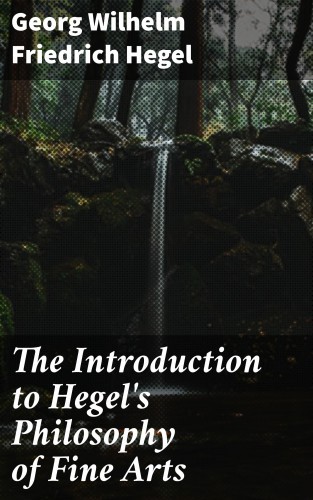- Ebook

Georg Wilhelm Friedrich Hegel's 'Introduction to Hegel's Philosophy of Fine Arts' is a compilation of notes from his university lectures on aesthetics. Hegel's definition of "the beautiful ideal" is developed throughout the lectures, examining the concept of the artistic ideal as it actualizes itself in three stages of art: symbolic, classical, and romantic. The lectures document the development of art from symbolic architecture to romantic painting, music, and poetry. While Hegel does not declare art to be "dead," he frequently speaks of its "dissolution," stating that art no longer counts as the highest mode in which truth procures existence for itself. This work is a valuable resource for anyone interested in the history of aesthetics and art philosophy.
-
FormatoEbook
-
EstadoNuevo
-
Isbn4057664635068
-
Peso608.9 KB
-
Número de páginas289
-
Año de edición2019
-
IdiomaInglés
-
FormatoEPUB
-
ProtecciónDRM
-
ReferenciaBKW97912
